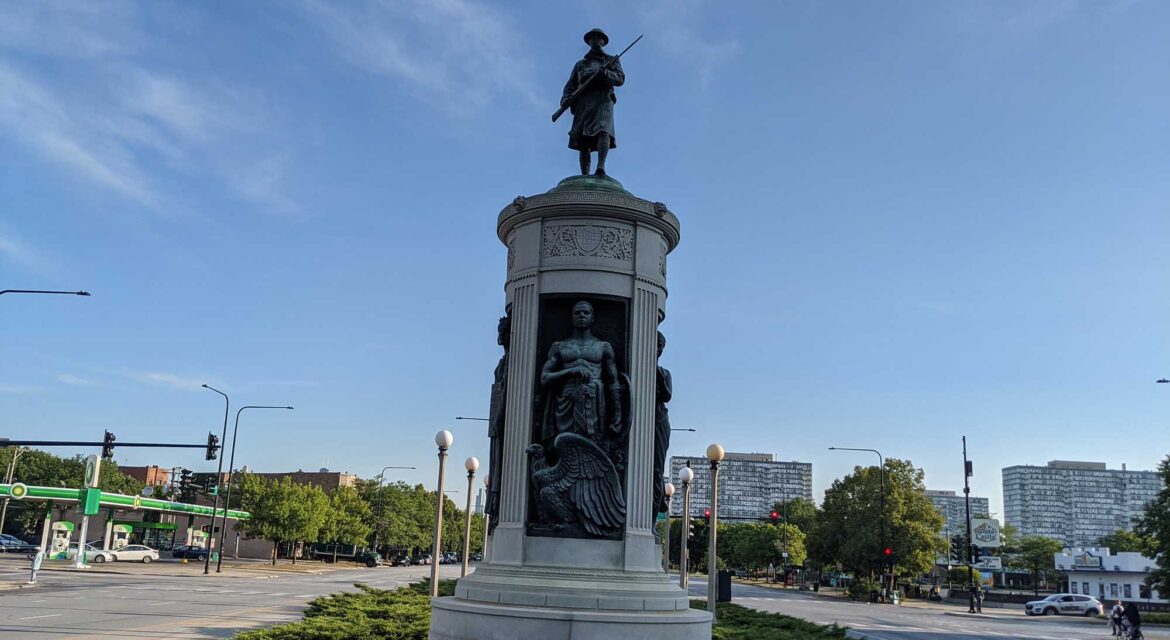 As the first state-sponsored memorial to African-American veterans of World War I, the Victory Monument has become a hub of activity for the Bronzeville neighborhood in Chicago, Illinois. In being dedicated to all the Black soldiers who died in the war, the monument has become an essential element of the community that connects it to the past and future of the entire city.
As the first state-sponsored memorial to African-American veterans of World War I, the Victory Monument has become a hub of activity for the Bronzeville neighborhood in Chicago, Illinois. In being dedicated to all the Black soldiers who died in the war, the monument has become an essential element of the community that connects it to the past and future of the entire city.

Honoring the Eighth Regiment of the Illinois National Guard
 The Victory Monument was constructed to honor the Eighth Regiment of the Illinois National Guard, an African-American unit that served in France during World War I. The unit saw action in France as the last regiment pursuing retreating German forces in the Aisne-Marne region, just before the war ended. The white granite column with relief panels were unveiled in 1927. The doughboy soldier on top was added in 1936 and dedicated to all the Black soldiers who died in the war.
The Victory Monument was constructed to honor the Eighth Regiment of the Illinois National Guard, an African-American unit that served in France during World War I. The unit saw action in France as the last regiment pursuing retreating German forces in the Aisne-Marne region, just before the war ended. The white granite column with relief panels were unveiled in 1927. The doughboy soldier on top was added in 1936 and dedicated to all the Black soldiers who died in the war.
One of the four bronze panels provides an honor roll of the dead, while the other three features figures. One is a bare-chested African-American soldier, another is a classically-draped African-American woman representing “motherhood” while the last has become recognized as a personification of the United States. This figure holds a tablet listing the Eight Regiment’s battles.
Added to the National Register of Historic Places in 1986 and designated as a Chicago Landmark in 1998, the Victory Monument is one of the most important elements of the Bronzeville Walk of Fame. An annual Memorial Day ceremony that is held at the monument further highlights the connection it has to the surrounding community, showcasing how such landmarks can connect the past to the present for an entire community.

Defining the Bronzeville Historic District
 As one of the nine structures in the Black Metropolis-Bronzeville Historic District, the Victory Monument has become an essential element of the Bronzeville neighborhood that residents identify with while also attracting interest from visitors across the region and beyond. This attention and activity highlight how the efforts to honor and memorialize the sacrifices made by others have enabled engagement and opportunity that spans multiple communities and entire eras.
As one of the nine structures in the Black Metropolis-Bronzeville Historic District, the Victory Monument has become an essential element of the Bronzeville neighborhood that residents identify with while also attracting interest from visitors across the region and beyond. This attention and activity highlight how the efforts to honor and memorialize the sacrifices made by others have enabled engagement and opportunity that spans multiple communities and entire eras.

